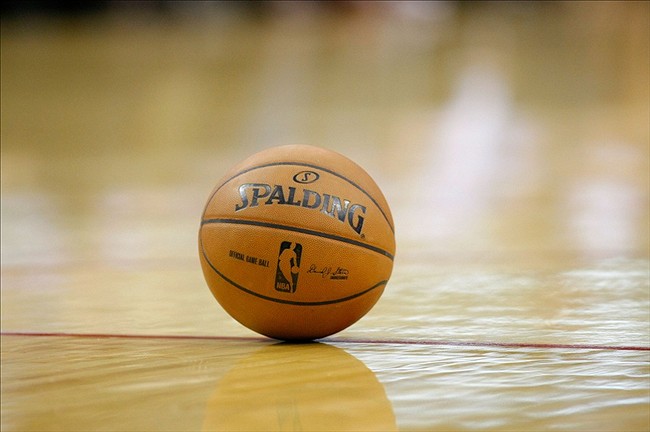Negotiations and the athletic director
Negotiation is often a formal, organized process of give and take, making proposals and eventually coming to a settlement, but it can also simply involve two individuals trying to work out differences. One side gives something with the prospect of getting something in return. When one of the sides refuses to budge and only expects concessions or capitulation from the other, there will rarely be a satisfactory outcome.
 To be successful in the negotiation process, both sides have to understand the individual or organization sitting on the other side of the table and see if common ground can be found. This means that you legitimately have to listen to what is being presented. Good settlements are usually the result of understanding and working together even if you don’t agree on all of the individual points.
To be successful in the negotiation process, both sides have to understand the individual or organization sitting on the other side of the table and see if common ground can be found. This means that you legitimately have to listen to what is being presented. Good settlements are usually the result of understanding and working together even if you don’t agree on all of the individual points.
As an athletic administrator, you probably won’t get involved in high-level negotiations such as salaries for coaches. This effort is usually done at the board or superintendent level on one side of the table and the teachers’ association on the other.
While you may not actually participate in the sessions, you will likely be asked for input and may have to do a lot of research with area schools in order to prepare the proposal.
You may or may not be unilaterally involved in negotiating sponsorship deals for signage in the gym, stadium or with naming rights for your venues. But this doesn’t mean that you will never be involved with the concept of negotiations. It happens more than you might imagine.
For example, you may routinely negotiate game contracts in which they may not be a simple home and away sequence. You might get two home games for one away contest or even come up with a revenue-sharing plan in exchange for additional home games.
Also, your role may be as simple as mediating how two teams can share space in the gym during inclement weather. While you should already have a plan in place for rainy day practice sessions, you may still have to help solve starting times, set up procedures and solve misunderstandings.
It is common for an athletic administrator to serve as a mediator when there is a conflict between a parent and coach. You may fill the role as the third party in a meeting and you typically help to maintain a respectful environment and to facilitate the conversation.
As a mediator, it is important to listen carefully and to try to appreciate both sides of the conflict. You, however, may have to make a decision — if it comes to that — and one that best serves the student-athletes and the entire program.
Of course, there may also be situations in which you have to negotiate with your supervisors — principal or superintendent — with respect to duties and expectations. In the current economic climate, it is not unusual for upper-level administrators to ask an administrator to undertake additional responsibilities. However, there are still only a finite number of hours in a day or week.
Finding solutions for occasional game coverage in the event that you don’t have an assistant to help, may involve some creativity and support from your supervisor. For example, the ability to use flex-time or alternative funding for occasional coverage at games might be the answer so that you can attend family functions. Sitting down and working out a solution with your supervisor may necessitate some negotiation.
Whether you are involved in face-to-face negotiations or serving as a mediator in the process, the following suggestions should be helpful.
- Do your homework. That includes research. It is extremely important to provide facts, details, documentation and that your stance is based upon logic and reason. Some of these efforts can and should include gathering information through conversations with colleagues and analyzing documents.
- Brainstorm. Carefully think through and prepare the points of your position. They should be clearly written and you should always develop a priority order. Always establish what items are absolutely essential and which ones can be offered as a concession.
- Pay attention. Listen carefully to the requests or position taken by the individual or team on the other side of the table. If something is unclear, ask if it can be restated. It is vital to understand all the nuances and details that are presented.
- Stay poised. Try to control your emotions during negotiation sessions. Getting angry can, and usually does, distort the ability to think clearly and this capability is vital in negotiations.
- Remain focused. Don’t be distracted by tangents, smoke screens or other tactics that may be employed by the opposition.
- Mind your manners. Always use “thank you” and “please” in your interactions at the negotiation table. Politeness and courtesy can be extremely disarming and, therefore, a very effective tool.
- Respect privacy. Don’t publically air or leak details of the negotiation meeting or the possible lack of progress. Everything discussed should be done in a closed-door situation and confidential, because real success depends upon a candid sharing of ideas. Going public to manipulate opinions only creates mistrust, and that becomes a major hurdle to find a satisfactory settlement.
- Consider the future. Keep in mind that at the completion of the negotiation process, you will have to go back to working with or dealing with this individual or group. If you take the approach of obtaining a complete victory or defeating your adversary, it may create a difficult or impossible environment for the future. Maintaining civility, and not nasty or vindictive approaches, during the give and take of the process may provide the bridge over differences.
Like most skills, the art and technique of negotiations can be learned and improved upon. You also might be surprised how often you may need to use these skills and how valuable they really are.
The end result or objective should always be providing the best environment for your student-athletes.





